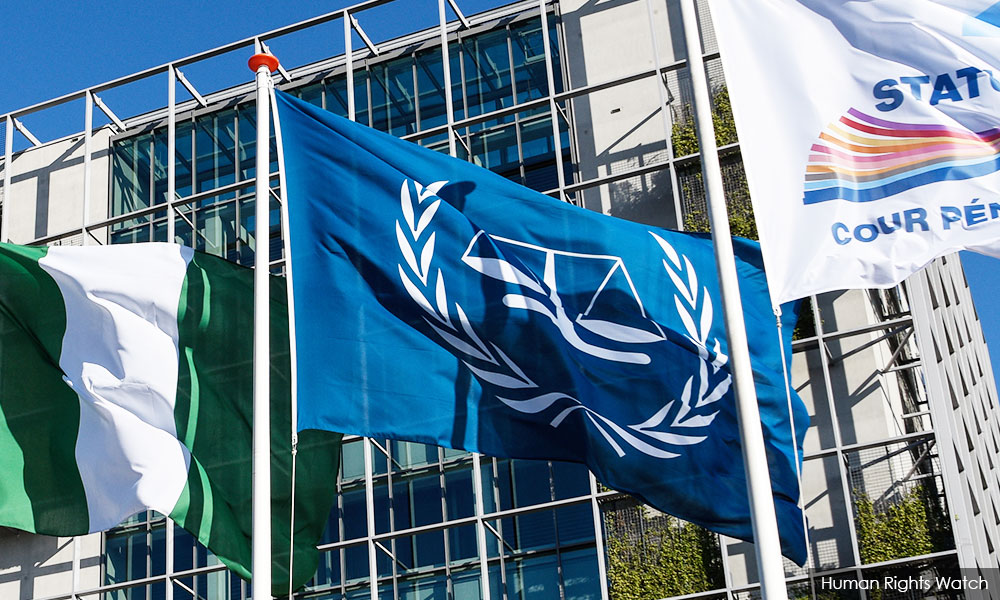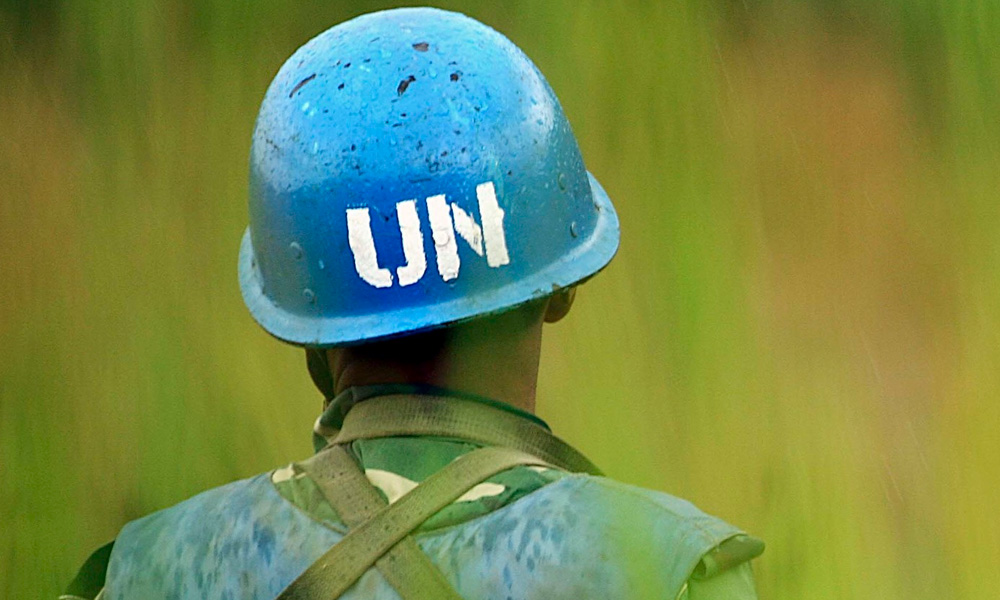COMMENT | I refer to the alleged presentation by several academicians to the Conference of Rulers dated April 2, which has been circulating in the media lately.
I recognise that the government has decided to withdraw from the Rome Statute of the International Criminal Court, and also acknowledge that the alleged presentation is a mere executive summary. My opinions below are therefore subject to the disclosure of the full report, if any.
But there are several points raised in the alleged presentation which are disconcerting and warrant an intellectual legal rebuttal – lest it leads to mischaracterisation of the issues at hand among members of the public.
Constitutional monarchy
First, it was suggested that because the Yang di-Pertuan Agong is entitled to information from the cabinet (Article 40(1) of the Federal Constitution) and to make his views known to the prime minister (Reid Commission Report), then he is not a constitutional monarch in the purest sense.
However, this only proves that the king plays an advisory role in governance. This does not in any way detract from the clear provision in Article 40(1A) that he must always act in accordance to the advice of the prime minister – and consequently, that the prime minister is entirely responsible for such decisions made.
Supreme commander
Second, reference was made to a Court of Appeal decision in Armed Forces Council Malaysia & Anor v Major Fadzil bin Arshad (2012), which purportedly held that “Surely His Majesty is expected to play an effective and meaningful role as the supreme commander.”
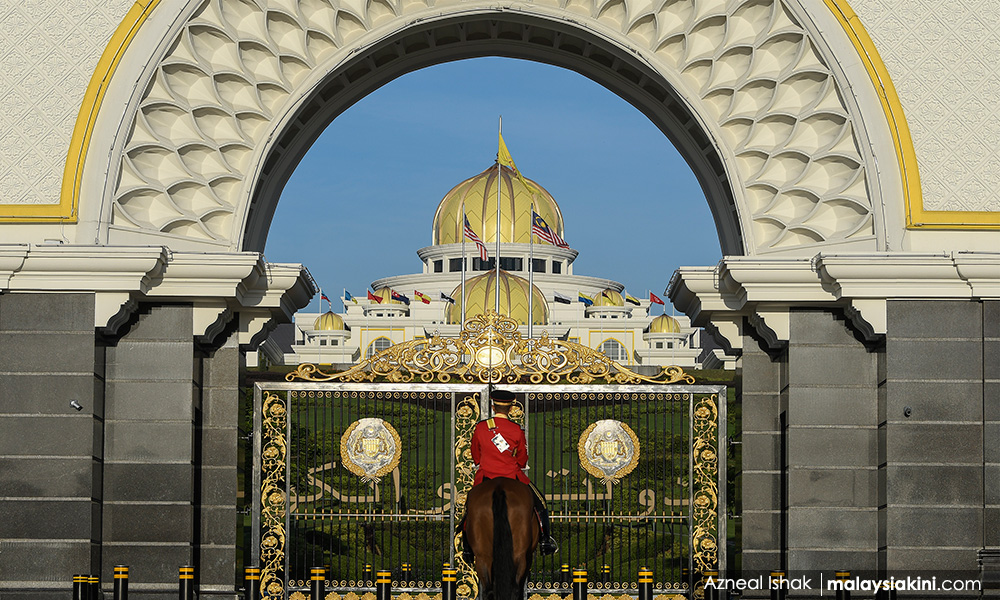
With respect, this was merely a dissenting opinion of the Court of Appeal, and it is perplexing that this was not pointed out in the alleged presentation. Any first year law student would tell you that this quote in no way is the authoritative principle enunciated by the court.
Privileges and position
Third, it was alleged that Article 38(4) states that laws passed which directly affects the privileges, position, honours or dignities of the rulers would require the consent of the Conference of Rulers.
With respect, this mischaracterises Article 38(4), which reads: “No law directly affecting the privileges, position, honours or dignities of the rulers shall be passed without the consent of the Conference of Rulers.”
The phrase “shall be passed” clearly means only laws passed in Parliament – and cannot possibly be read to include ratification of international treaties.
The assertion that Article 159(5) has been violated is even more baseless. It provides that amendments to the constitution on several limited provisions cannot be done without the consent of the Conference of Rulers.
It is clear as daylight that ratification of the Rome Statute does not involve an amendment to the constitution at all. The limited provisions referred in Article 159(5) also do not include the immunities of the rulers. It is therefore disturbing to suggest that Article 159(5) has been breached in any way.
These arguments also presuppose that the Yang di-Pertuan Agong and rulers have absolute immunity to begin with. Since 1993, amendments were made to the constitution to allow criminal proceedings to be instituted against the king and the rulers via special courts (see Articles 32, 181, 182 and 183 of our constitution).
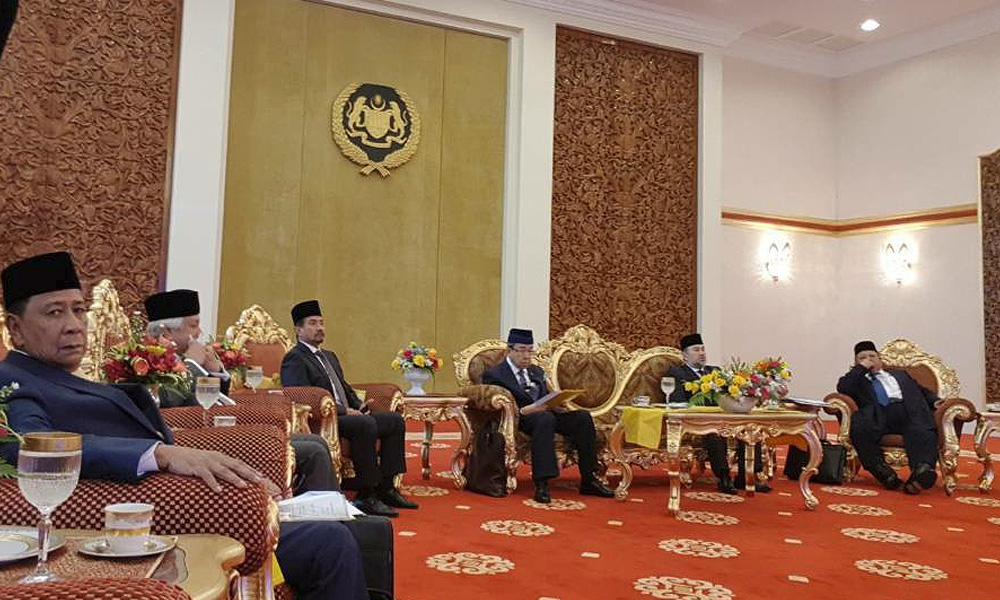
Hence, even domestically, the Yang di-Pertuan Agong and rulers do not have absolute immunity (albeit governed by certain special procedures) and can be held accountable for crimes. This was a crucial point which was never highlighted in the alleged presentation.
'Effective command and control'
Fourth, it was alleged that Articles 27 and 28(a) of the Rome Statute affect the position of the Yang di-Pertuan Agong. Again, if we look closer at Article 28(a) of the Rome Statute, the ICC only has jurisdiction to try a military commander who has “effective command and control” or “effective authority and control as the case may be.”
A king who must act on the advice of the prime minister is unlikely to be an “effective” commander of the armed forces – he is, at best, a symbolic figurehead.
No consent needed
Fifth, it was alleged that because the government ratified the Rome Statute without the consent of the Yang di-Pertuan Agong, this violates Article 46 of the Vienna Convention on the Law of Treaties (VCLT).
Article 46 of the VCLT says that, as a general rule, a state may not depart from treaty obligations on grounds that it is in violation of internal law regarding competence to conclude treaties. The only exception is if (a) such violation of internal law was manifest (it is considered manifest only if it would be objectively evident to any state), and (b) it concerned a rule of its internal law of fundamental importance.
Arguably, Malaysia cannot invoke the two exceptions to Article 46. Any violation cannot be considered “manifest,” nor can the internal law be of “fundamental importance” because it is clear that under the constitution no such consent by the Yang di-Pertuan Agong or Conference of Rulers – as with many other constitutional monarchies which have ratified the ICC – was required for ratification of foreign treaties.
'Unable or unwilling'
Sixth, it was alleged that the interpretation of the “unable” or “unwilling” principle under Article 17 of the Rome Statute (which states that the ICC can only assume jurisdiction if states are “unable” or “unwilling” to act) “hanyalah berdasarkan keputusan pendakwa ICC semata-mata (is only based on the decision of ICC prosecutor alone).
This is untrue. Article 17 clearly provides that the ICC Court itself – and not the prosecutor unilaterally – has the final say on whether the “unable” or “unwilling” principle is satisfied. Malaysia will have its day in court to argue the same if it does not agree with the prosecutor.
And the ICC Court will arrive at a decision, as it did in Prosecutor v Katanga (2009).
Referring matters to ICC
Seventh, it was alleged that “Malaysia yang tidak terjejas apa-apa dengan jenayah ini dan tidak terkat dengan krisis Rohingya di Myanmar tidak boleh memaksa ICC untuk mengambil tindakan ke atas Myanmar walaupun selepas menjadi ahil statut Rom. (Malaysia, which loses nothing with the crime and is not involved with the Rohingya crisis in Myanmar, cannot force the ICC to take action against Myanmar even after acceding to the statute)."
This is inaccurate. As long as an element of a crime has been committed in a state party, then any state party can refer the matter to the ICC (see Article 14 of the Rome Statute).
This was decided in the recent ICC decision i.e. “Prosecution’s Request for a Ruling on Jurisdiction under Article 19(3) of the Statute” (2018). For example, if the Myanmar military has committed genocide on Rohingya in Bangladeshi territory, even Malaysia (a state party) can initiate a referral to the ICC independent of Bangladesh.
Past royal examples
Eighth, it was impressed that there have been attempts to prosecute royalties in the past. The example given was King Wilhelm II of Germany who was named in the Leipzig War Crimes Trials, but had fled to the Netherlands, as well as Emperor Hirohito of Japan, who was allegedly under the jurisdiction of the International Military Tribunal for the Far East after World War 2, but was spared by the US.
With respect, these are false equivalences. The German kaiser was an absolute monarch. So was the emperor of Japan, who under the country's constitution then, had divine power over his country from the Shinto belief that the emperor was the offspring of the sun goddess Amaterasu (only in 1946 was the emperor's title changed from "imperial sovereign" to "constitutional monarch").
They were both absolutely in control of the military. There is a stark difference between such absolute monarchs and the modern Yang di-Pertuan Agong and rulers who are constitutional monarchs.
Further, the alleged presentation seems to have missed the fact that both Wilhelm and Hirohito were attempted to be tried even when the ICC had not existed. In today’s terms, the UN may create ad hoc tribunals as it did in Rwanda and the former Yugoslavia – regardless of whether they had ratified ICC.
This goes to highlight the fact that, as academic Shad Saleem Faruqi puts it, “ratification or no ratification, in the present state of international law, perpetrators may have no place to hide.”
Peacekeeping missions
Ninth, it was alleged that the Yang di-Pertuan Agong would be exposed to the ICC because of Malaysia’s participation in UN peacekeeping missions across the globe. This is baffling.
UN peacekeeping missions are meant to prevent genocide or war crimes from happening. To suggest that the UN itself would remotely commit the same ill crimes it intended to pacify is bewildering. To my knowledge, there has never been any attempt to prosecute UN peacekeeping forces under the ICC.
Laws against homosexuality
Tenth, it was alleged that our laws criminalising homosexuality would expose us to a “war crime” under Article 7(2) of the Rome Statute which criminalises “persecution against any identifiable group or collectivity on... gender as defined in paragraph 3”. This is untrue.
We must look at what paragraph 7(3) of the Rome Statute says: “For the purpose of this statute, it is understood that the term 'gender' refers to the two sexes, male and female, within the context of society. The term "gender" does not indicate any meaning different from the above.” Hence, “gender” under Article 7(2) clearly does not include sexual orientation – and therefore does not include persecution of homosexuals.
'Selective prosecution'
Eleventh, it was suggested that there are cases of selective prosecution towards Kenya and the Ivory Coast. There is a wealth of literature to counter such arguments, as well as credible international reports that war crimes have occurred there, and I do not wish to reproduce them here for brevity’s sake.
Veto powers
Finally, it was alleged that there is a likelihood of veto by the P5 nations on the ICC investigations: Russia in the MH17 investigations, China in Rohingya genocide and US in the Israel-Palestine dispute. It was also stated that many Asean countries are not part of the ICC.
I am not going to be ignorant of the realities of international law. But Malaysia cannot stand idly by while such gross violations of humanity are occurring. If we are not part of the Rome Statute, where is our credibility and standing to shout about war crimes and genocide? We must adhere to a higher standard, and not lower ourselves in imitating the worst traits of superpowers.
The public and the royalty deserve legal objectivity and accuracy on this controversial issue. If we allow crucial foreign policy decisions to be swayed by one side without considering countervailing arguments, it will not be good for the nation as a whole.
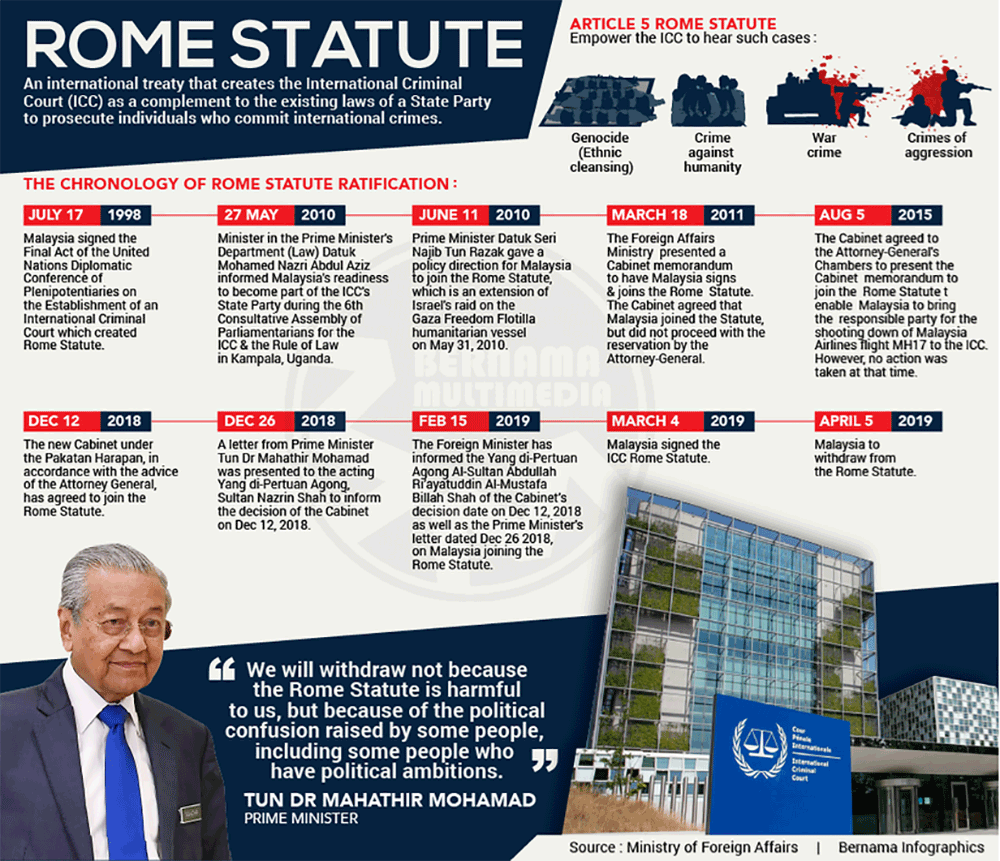
LIM WEI JIET is an advocate and solicitor of the High Court of Malaya. He is also the author of Halsbury’s Laws of Malaysia on the Federal Constitution (2019 reissue).
The views expressed here are those of the author/contributor and do not necessarily represent the views of Malaysiakini.


